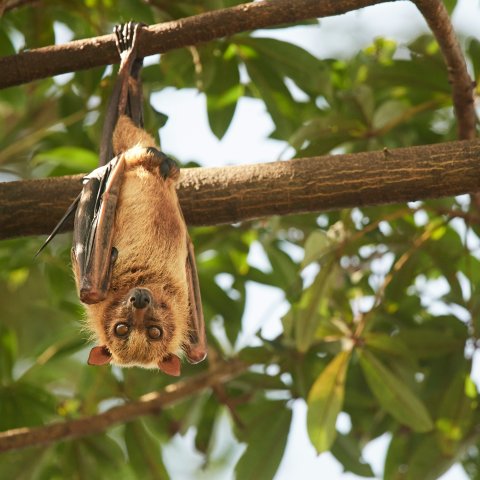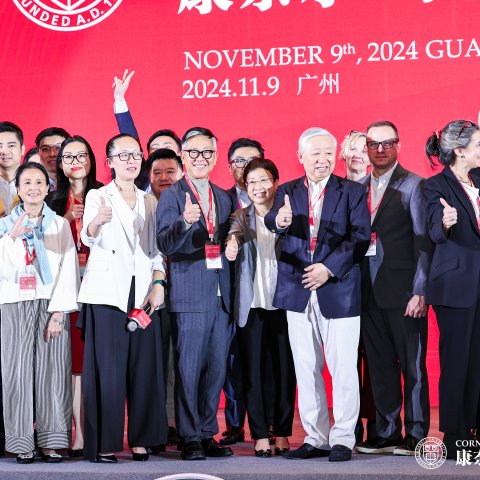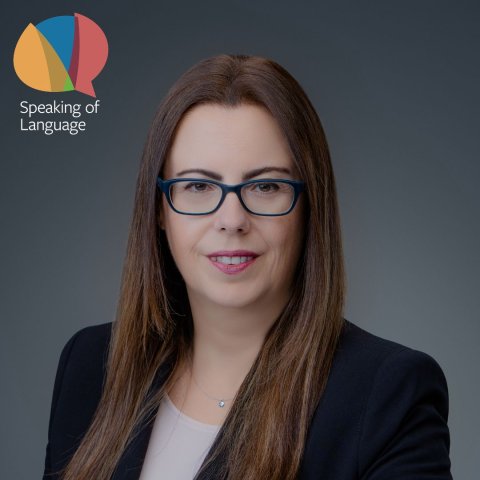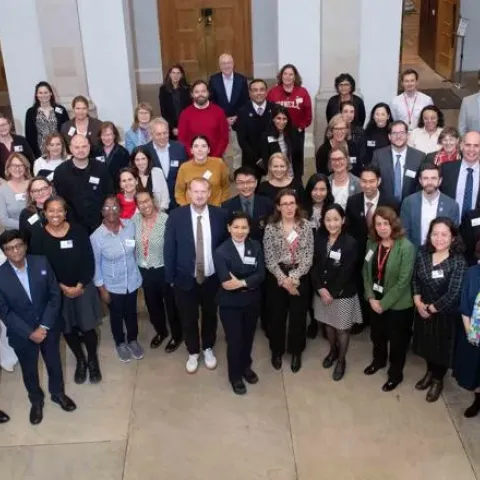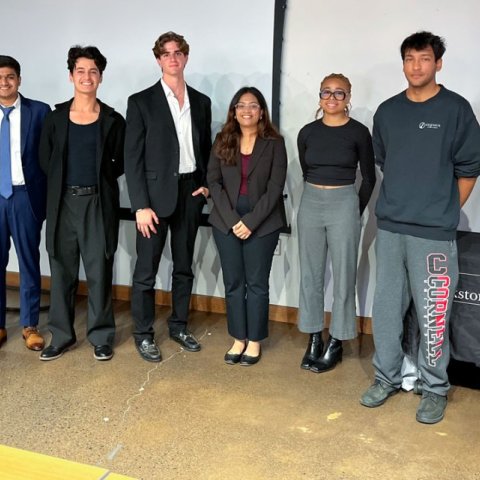Global Hubs News
Full listing
Qi Wang, the Joan K. and Irwin M. Jacobs Professor of Human Development in the College of Human Ecology, teams up with Andrew Hoskins from the University of Edinburgh on a new book, The Remaking of Memory in the Age of Internet and Social Media.
Source
Cornell researcher Raina Plowright and her team observed that when bats in Australia lost access to their habitat and natural food sources, they sought food on agricultural lands. And when the animals’ diets changed, they shed more virus, increasing the virus’ spread to horses, as well as the risk to people.
Source
A study published in the Cambridge Journal of Regions by researchers from USFQ, Cornell University, and Penn State warns that we need to rethink the economic and social structure at a global level.
Source
Cornell alumni, faculty, and global experts gathered in Guangzhou for the 2024 Cornell-China Forum to discuss sustainability, aging, future cities, and education.
Cornell's Language Resource Center catches up with Şebnem Özkan, director of Global Hubs, to learn what's new in Cornell's collaborative, interdisciplinary initiative with partners around the world.
Source
Over 70 undergraduates learned career-shaping lessons in the field last summer with support from Global Internships and the Laidlaw Scholars Program. Hear more about their experiences at the Nov. 19 Global Cornell Experience Showcase.
Source
Global Cornell welcomed almost 100 representatives from 18 international Global Hubs partner institutions to London for the second network meeting, co-hosted by King's College London. Participants came together to exchange ideas and pave the way for collaborations and engagement to build a better world.
Source
Prakhar Singhania's Cold Bank food storage system took the top prize in the BIG Idea Competition. Singhania is an undergraduate exchange student from Global Hubs partner Ashoka University studying supply chain, food science, and material science.
Source
Four Imperial College London PhD students share their experiences at Cornell during the 2023-24 academic year. They partnered with Cornell professors and researchers as part of the Imperial Global Fellows Fund.



